Module 2 Experiences.Unit 3 Language in use 课件 (2)(共66张PPT)
文档属性
| 名称 | Module 2 Experiences.Unit 3 Language in use 课件 (2)(共66张PPT) | 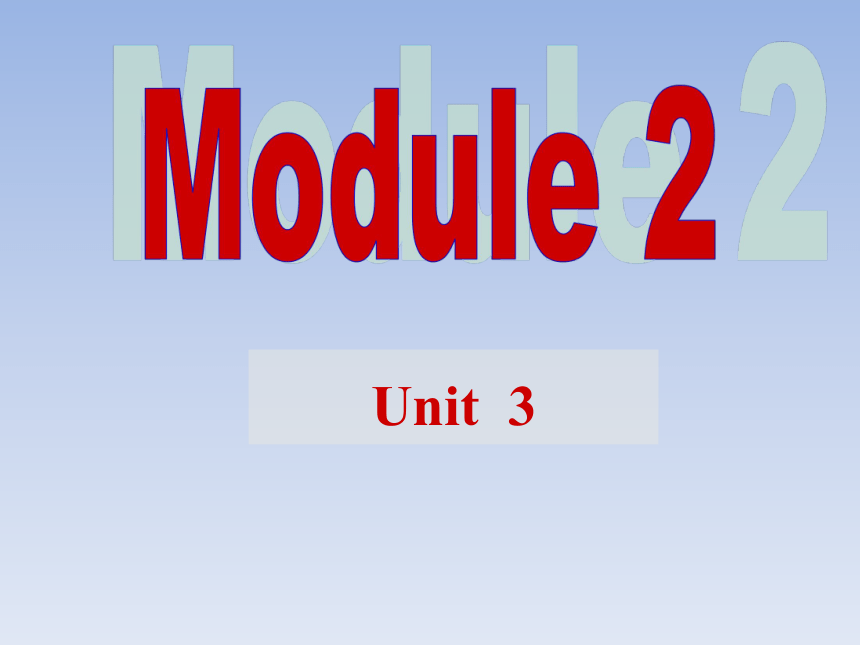 | |
| 格式 | ppt | ||
| 文件大小 | 3.8MB | ||
| 资源类型 | 教案 | ||
| 版本资源 | 外研版 | ||
| 科目 | 英语 | ||
| 更新时间 | 2022-07-13 12:22:35 | ||
图片预览

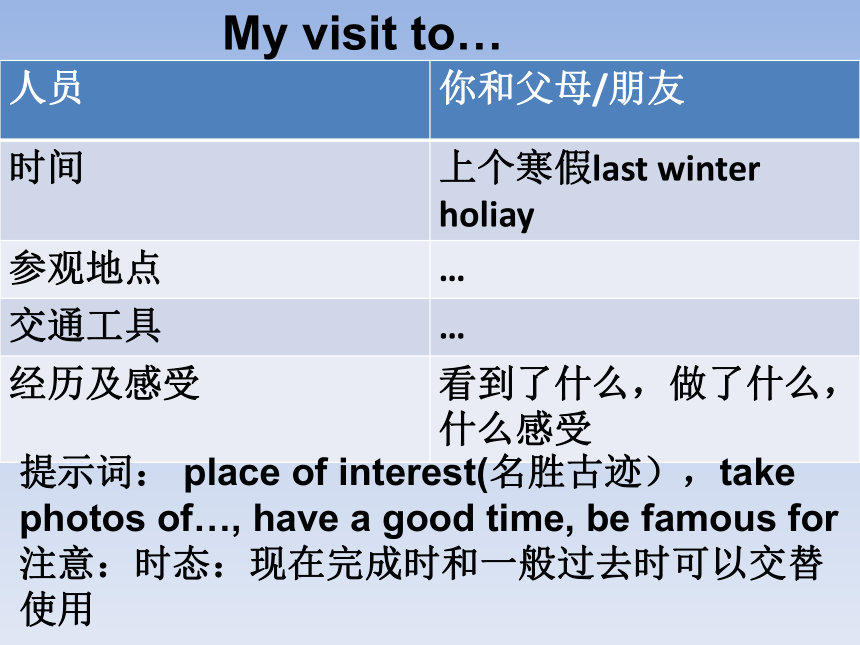


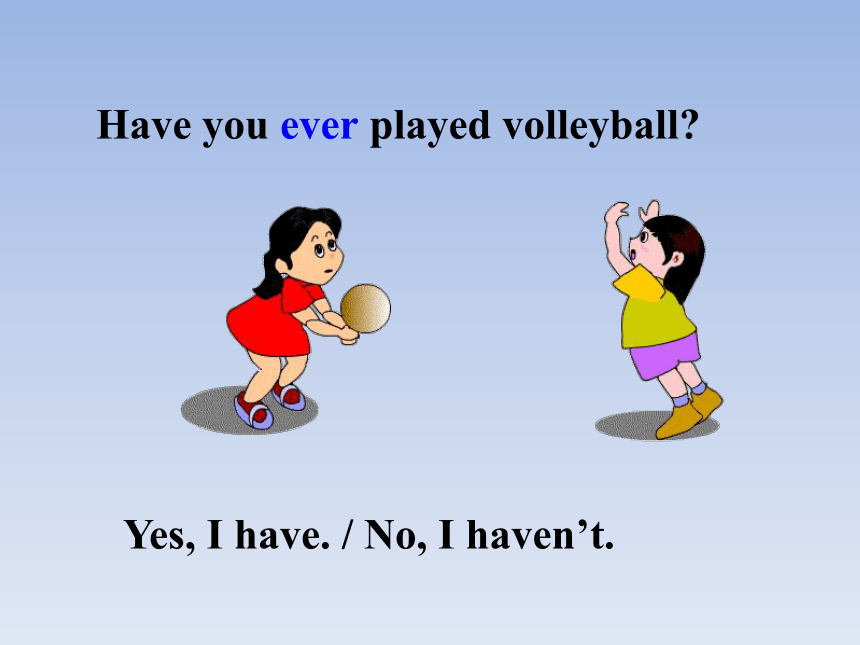
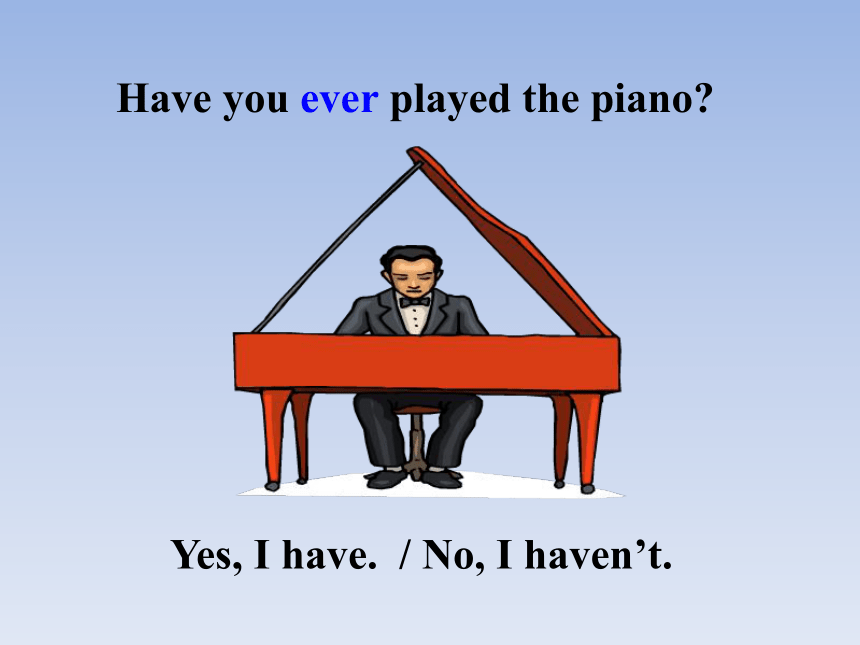
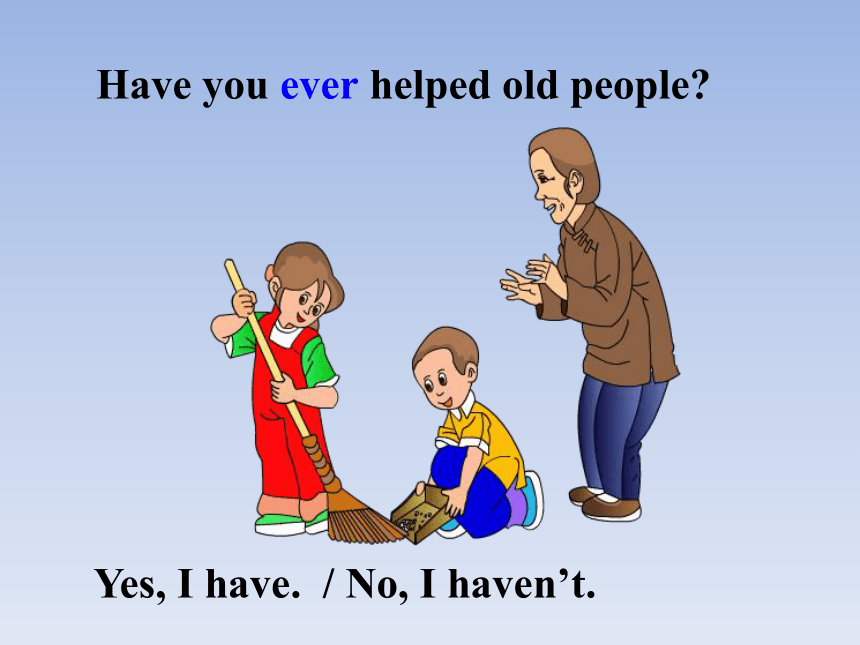

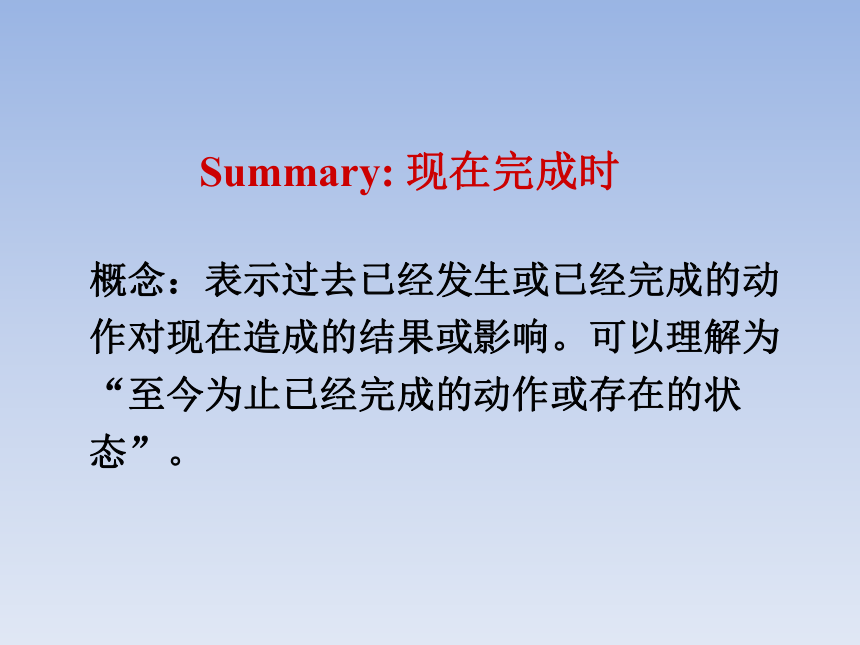
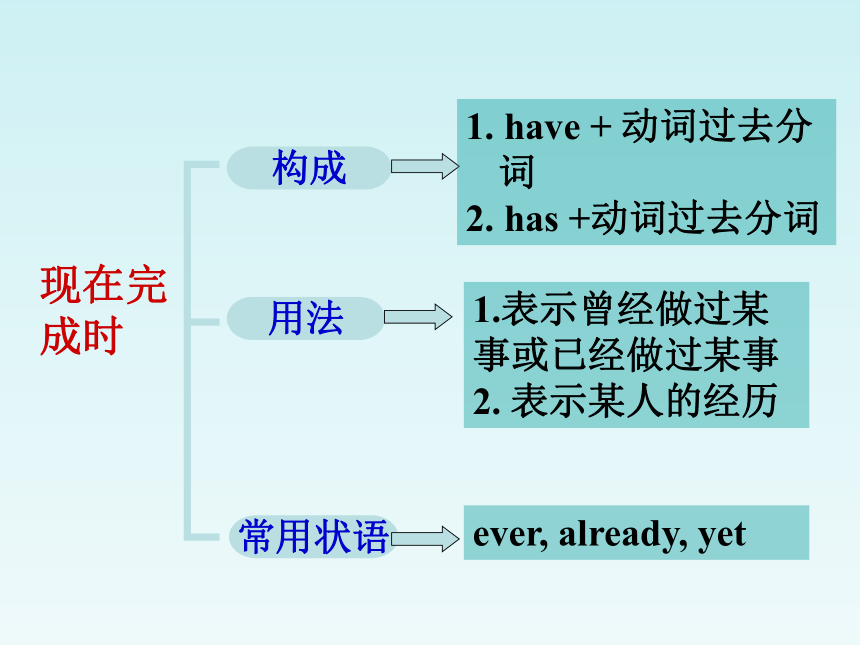
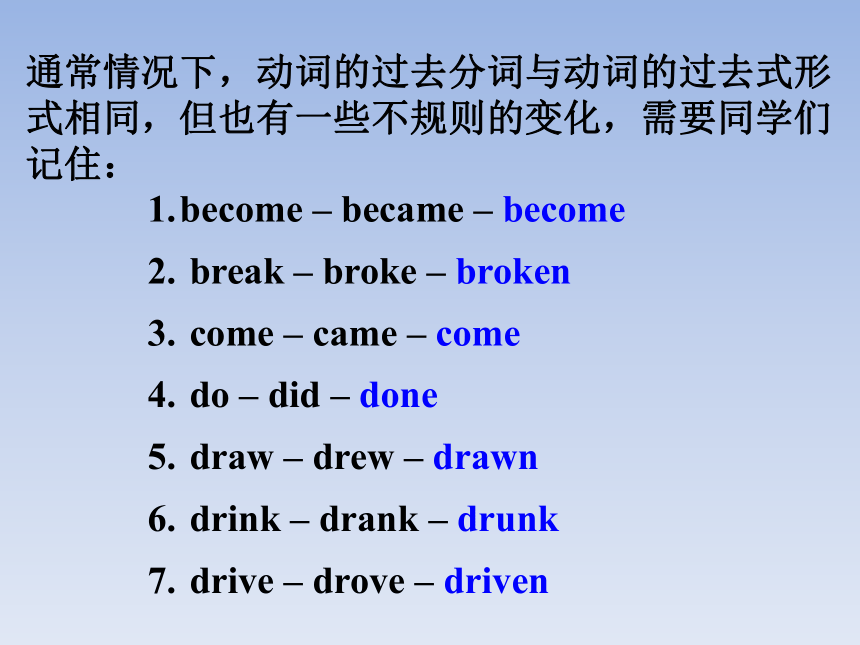
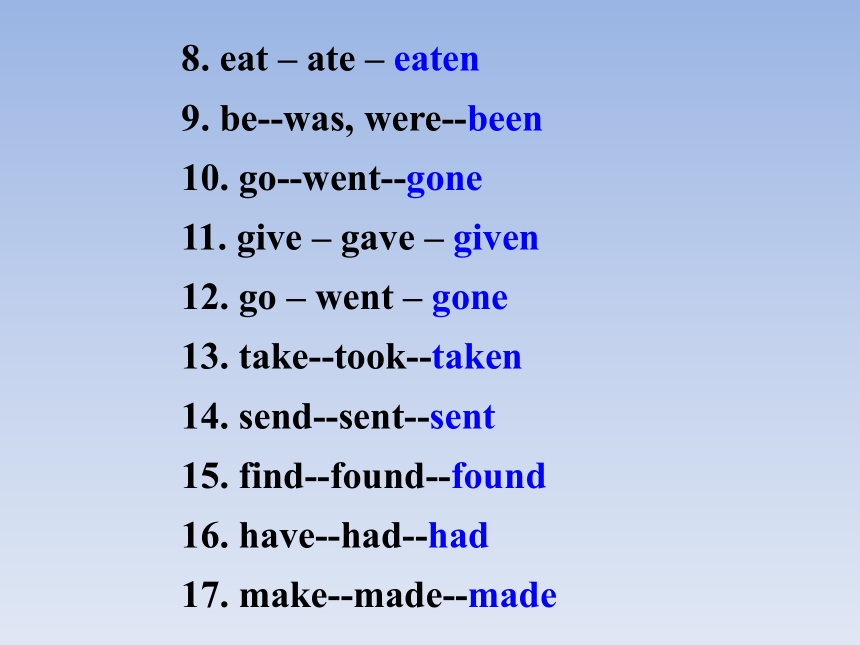
文档简介
(共66张PPT)
Unit 3
人员 你和父母/朋友
时间 上个寒假last winter holiay
参观地点 …
交通工具 …
经历及感受 看到了什么,做了什么,什么感受
提示词: place of interest(名胜古迹),take photos of…, have a good time, be famous for
注意:时态:现在完成时和一般过去时可以交替使用
My visit to…
Have you ever …
Yes , I have. / No , I haven’t.
What’s the boy doing
Have you ever played the guitar
Yes, I have.
No, I haven’t.
Have you ever played volleyball
Yes, I have. / No, I haven’t.
Have you ever played the piano
Yes, I have. / No, I haven’t.
Have you ever helped old people
Yes, I have. / No, I haven’t.
A: Have you ever …
B: Yes, I have.
( No, I haven’t.)
概念:表示过去已经发生或已经完成的动作对现在造成的结果或影响。可以理解为 “至今为止已经完成的动作或存在的状态”。
Summary: 现在完成时
构成
用法
常用状语
现在完成时
1. have + 动词过去分词
2. has +动词过去分词
1.表示曾经做过某事或已经做过某事
2. 表示某人的经历
ever, already, yet
通常情况下,动词的过去分词与动词的过去式形
式相同,但也有一些不规则的变化,需要同学们
记住:
become – became – become
break – broke – broken
come – came – come
do – did – done
draw – drew – drawn
drink – drank – drunk
drive – drove – driven
8. eat – ate – eaten
9. be--was, were--been
10. go--went--gone
11. give – gave – given
12. go – went – gone
13. take--took--taken
14. send--sent--sent
15. find--found--found
16. have--had--had
17. make--made--made
Write questions for the questionnaire with Have you ever…
1. have a Western meal
2. live in another city
3. enter a singing competition
4. travel by train
5. travel to the seaside
6. try seafood
7. cook dinner for your parents
Activities You Your partner
1 Have you ever had a Western meal
2
3
4
Have you ever lived in another city
Have you ever entered a singing competition
Have you ever travelled by train
Activities You Your partner
5
6
7
Have you ever travelled to the seaside
Have you ever tried seafood
Have you ever cooked dinner for your parents
1 He/ She has/hasn't had a Western meal.
2 He/ She has/hasn't lived in another city.
3 He/ She has/hasn't entered a singing competition.
4 He/She has/hasn't travelled by train.
5 He/She has/hasn't travelled to the seaside.
6 He/She has/hasn't tried sea food.
7 He/She has/hasn't cooked dinner for his/her parents.
Work in pairs. Ask and answer questions.
Have you ever climbed the Great Wall
the Great Wall
roast duck
the Palace Museum
Beijing Opera
Complete the postcard. Use the list of things to do in Beijing to help you.
Things to do in Beijing:
see the Beijing Opera √
climb the Great Wall ×
eat Beijing duck √
visit the Palace Museum √
Have you ever visited the Palace Museum
Yes, I have. No, I haven't.
Have you ever seen the Bejijng Opera
Yes, I have. No, I haven't.
see---saw----seen
Have you ever eaten the Raost Duck
Yes , I have. No, I haven't.
eat——ate——eaten
Dear David,
I am having a wonderful time in Beijing. I’ve done so many things!
_________________________________________
_________________________________________ _________________________________________
There’s only one thing I haven’t done: I
_________________________________________
Bye for now.
Rob
I have visited the Palace Museum.
I have seen the Beijing Opera.
I have eaten roast duck.
haven’t climbed the Great Wall.
afford, competition, pronounce spell tower
1 I wrote a story for a(n)________________in my English class and I won a prize.
competition
2 Alice can__________________very well, and what's more, she can write beautifully.
spell/pronounce
spell/pronounce
tower
5 Mary wants to visit the US, but the plane tickets are very expensive and she cannot ________________to go.
afford
People China the US
Winnie
Diana
Bob
√
√
√
Listen and check the country that people have been to.
Write questions and answer them, using present perfect.
1. he / read / stories
2. they / enjoy / Western food
3. your parents / travel / Europe
-- Has he read stories
-- Yes, he has.
-- Have they enjoyed Western food
-- No, they haven’t.
-- Have your parents traveled to Europe
-- Yes, they have.
4. Sally / do some sightseeing
5. your sister / visit / Disneyland
-- Has Sally ever done any sightseeing
-- Yes, she has.
-- Has your sister visited Disneyland
-- No, she hasn’t.
Listen again and answer the questions.
1. How many times has Winnie been to the US
2. Which country would Diana like to go again
She would like to go to China again.
She has been to the US 3 times.
3. Which part of China has Diana travelled around
4. How did Diana travel there
5. Has Bob ever visited Germany
She has travelled around South China.
She travelled there by train.
Yes, he has. He’s been all over Europe.
They have been to many interesting places.
My father has been to Beijing twice.
I have never been to the Great Wall.
Have you ever been to a museum
Tom has been to Japan and I have also been there.
have / has been to
Read the sentences, paying attention to the underlined parts.
have been to意为“曾经去过某地”,表示一种经历,含有“现在已离开那儿”之意,后可接次数(如once,twice,three times等)表示“去过某地几次”,也可和just,never,ever等连用。
I have ever been to Shanghai.
_____ you ever ______ ____Shanghai
No, I _________. I ______ _______ ______ to Shanghai.
Wang Ming has been to Liu Huan’s concert.
______Wang Ming _____ ____ Liu Huan’s concert
Yes, he ______.
been to
haven’t
have never been
Has been to
has
Have
Complete the sentences.
Dear David,
I am having a wonderful time in Beijing. I’ve done so many things!
_________________________________________
_________________________________________ _________________________________________
There’s only one thing I haven’t done: I
_________________________________________
Bye for now.
Rob
I’ve visited the Palace Museum.
I’ve seen Beijing Opera.
I’ve eaten Beijing duck.
haven’t climbed the Great Wall.
3. He Meifeng went to a Beijing cinema.
____ He Meifeng _____ to a Beijing
cinema
Yes, she _____.
4. Zhang Ziyi was in the seat beside her.
______ Zhang Ziyi in the seat beside her
No, she _______.
Did go
did
Was
wasn’t
单项选择。
( )1. — Have you taken out the trash, Belly
— ______. I’ll do it right away.
A. Sorry, I have B. No, I didn’t
C. No, I don’t D. Not yet
( )2. — Have you _______ visited Shanghai
— No, _______.
A. ever; not B. never; not
C. ever; never D. never; ever
D
C
( )3. —Could you go to the park with me this afternoon
—Sorry, I _______ there. I went there
yesterday.
A. have gone B. have been
C. went D. was
( )4. —Have you washed your clothes ______
—No, I haven’t. But I have cleaned the room _______.
A. ago; already B. yet; yet
C. before; yet D. yet; already
B
D
( )5. I am a soldier. I ______ the
army ______ about five years.
A. have joined; since
B. have joined; for
C. have been in; for
D. have been in; since
C
(2010 .河北省卷,41. 1) My brother left school in 2005, and since then he in Beijing.
A. lives B. lived
C. will live D. has lived
(2010·湖北省黄冈市,35,1) - I joined the League ______ May, 2008. What about you
-I’ve been a League member ______ three years.
A. in; for B. on; in
C. on; for D. in; since
D
A
(2013广西贵港) —Do you know the movie Lost in Thailand
—Yes. I ______ it twice. It’s funny.
A. saw B. see
C. have seen D. will see
C
Work in pairs. Ask and answer the questions in the questionnaire.
--- Have you ever had a Western meal
--- Yes, I have. / No, I haven’t.
现在完成时与一般过去时
现在完成时表示的是与现在有关联的过去事件;而一般过去时则与现在毫无关系,只是单纯的过去的情况。例如: I saw this film yesterday.
(强调看的动作发生过了) I have seen this film.
(强调对现在的影响,电影的内容已经知道了)
当句子中有表示明确过去的状语时,只能用一般过去时,不能用现在完成时。
他一周以前动身去了纽约。
误:He has left for New York a week ago.
正:He left for New York a week ago.
--- ______ they _______ (see) the film yet
--- Yes. They _____________ (see) it already.
--- When ______ they ______ (see) it
--- They _______ (see) it just now.
Have
seen
have seen
did
see
saw
Write a questionnaire about your experiences.
Have you ever
had a Western meal
lived in another country
written a poem or a story
traveled by plane
played the piano
tried seafood
cooked dinner for your parents
Yes, I have. / No, I haven’t.
Have you ever been to other countries
Which country do you want to travel
Read and complete the passage with the sentences in the box.
The Keys:
1. _______ 2. _______
3. _______ 4. _______
d
c
b
e
Have you ever been to the top of the world Do you know where it is
Mount Qomolangma
Around the world
Mount Qomolangma
Qomolangma runs along the border between China and Nepal. It is covered with snow all the year round. It’s 8844.43 high, the highest in the world. It’s 26 kilometers long.
Qomolangma means "Holy mother" in Tibetan and represents the mother goddess of the Earth. Besides experienced mountaineers, Mt. Qomolangma draws scientists and ordinary tourists. As the supreme point of the world, the mountain top is covered with snow all the year round, and when the glaring sun comes out, the peak becomes very pure and beautiful. Apart from that, many precious plants and animals live in the national natural reserves built in the area of Mt. Qomolangma.
1953年5月29日,34岁来自新西兰的登山家埃德蒙·希拉里(Edmund Hillary)作为英国登山队队员与39岁的尼泊尔向导丹增·诺尔盖Tenzing Norgay 一起沿东南山脊路线登上珠穆朗玛峰,是纪录上第一个登顶成功的登山队伍。
1960年5月25日,中华人民共和国人首次登上珠穆朗玛峰。他们是王富洲、贡布(藏族)、屈银华。此次攀登,也是首次从北坡攀登成功。
1960年,我国首次登上地球之颠的3名英雄。
1975年5月16日,日本人田部井淳子的从南坡登上了珠峰。
1975年5月27日,中国登山队的藏族女队员潘多成为世界上第一个从北坡登上珠穆朗玛峰的女性。
2013年5月23日,日本80岁探险家三浦雄一郎成功攀上珠穆朗玛峰峰顶,成为世界上登顶珠峰年龄最大的人。
2010年5月22日,13岁的美国男孩乔丹·罗梅罗(Jordan Romero)成为有史以来最年轻的登上珠峰的人。
珠穆朗玛峰,峰高势伟,地理环境独特,峰顶的最低气温常年在零下34℃。山上一些地方常年积雪不化,冰川、冰坡、冰塔林到处可见。峰顶空气稀薄,空气的含氧量只有东部平原地区的四分之一,经常刮七八级大风。十二级大风也不少见。风吹积雪,四溅飞舞,弥漫天际。
2008年5月8日,中国登山队圣火传递珠穆朗玛峰突击队员,成功地把圣火从8300米突击队营地传递到了珠穆朗玛峰峰顶,创造了人类奥运历史上的奇迹。
Writing a questionnaire about experiences
Write a question about life experiences for each of the topics. Use Have you ever…
Transport: ______________________________
Book:__________________________________
Country:________________________________
Food:__________________________________
Sport:__________________________________
Film:___________________________________
Have you ever travelled by plane
Work in groups of four. Ask questions about the experiences. Then, write the answers.
Topic Questions Student 1 Student 2 …
Transport Have you ever travelled by plane
Book
Country
Food
Sport
Film
Write a short passage about one of your fantastic experiences. You may choose one topic from the above discussion, such as sport, book, film, food, technology, etc. You should tell us WHAT, WHERE, WHEN, HOW, WHY and HOW you do it. You may begin like this:
I have had a fantastic experience. This
afternoon, when I was on my way home, I
saw a blind man waiting at the bus stop. I …
I. 按每小题的要求转换句子(每空一词)。
1. I left school in 2007. Then I came here.(用现在完成时改写)
I ______ ______ here since I left school in 2007.
2. I knew Sally two years ago.(用现在完成时改写)
Sally and I _______ ______ each other for two years.
3. I borrowed the book one month ago.(用现在完成时改写)
I ______ ______ the book for one month.
have been
have known
have kept
Exercise
4. Mary has already entered a writing competition. (改为否定句)
Mary ________ entered any competition _________.
5. My father has stayed in Tianjin for two weeks. (对画线部分提问)
_______ _______ _______ your father stayed in Tianjin
hasn’t
yet
How long has
II. 根据下面的对话内容,在对话的空白处填上恰当的表达, 使其意思通顺、合理, 结构完整。
Julia: Where did you go yesterday
Betty: I went to Beijing Cinema.
Julia: Beijing Cinema __________ film did
you see there
Betty: I saw The House of the Flying Daggers.
What
Julia: Really That is a great film. ______ is
your favourite actor in the film
Betty: Zhang Ziyi. Have you ever ______ the
film
Julia: No, I am busy with my test. ______ will
the film be on
Betty: I heard it will be on Beijing Cinema
next week.
Julia: OK, thank you. I will see it.
Who
seen
When
Unit 3
人员 你和父母/朋友
时间 上个寒假last winter holiay
参观地点 …
交通工具 …
经历及感受 看到了什么,做了什么,什么感受
提示词: place of interest(名胜古迹),take photos of…, have a good time, be famous for
注意:时态:现在完成时和一般过去时可以交替使用
My visit to…
Have you ever …
Yes , I have. / No , I haven’t.
What’s the boy doing
Have you ever played the guitar
Yes, I have.
No, I haven’t.
Have you ever played volleyball
Yes, I have. / No, I haven’t.
Have you ever played the piano
Yes, I have. / No, I haven’t.
Have you ever helped old people
Yes, I have. / No, I haven’t.
A: Have you ever …
B: Yes, I have.
( No, I haven’t.)
概念:表示过去已经发生或已经完成的动作对现在造成的结果或影响。可以理解为 “至今为止已经完成的动作或存在的状态”。
Summary: 现在完成时
构成
用法
常用状语
现在完成时
1. have + 动词过去分词
2. has +动词过去分词
1.表示曾经做过某事或已经做过某事
2. 表示某人的经历
ever, already, yet
通常情况下,动词的过去分词与动词的过去式形
式相同,但也有一些不规则的变化,需要同学们
记住:
become – became – become
break – broke – broken
come – came – come
do – did – done
draw – drew – drawn
drink – drank – drunk
drive – drove – driven
8. eat – ate – eaten
9. be--was, were--been
10. go--went--gone
11. give – gave – given
12. go – went – gone
13. take--took--taken
14. send--sent--sent
15. find--found--found
16. have--had--had
17. make--made--made
Write questions for the questionnaire with Have you ever…
1. have a Western meal
2. live in another city
3. enter a singing competition
4. travel by train
5. travel to the seaside
6. try seafood
7. cook dinner for your parents
Activities You Your partner
1 Have you ever had a Western meal
2
3
4
Have you ever lived in another city
Have you ever entered a singing competition
Have you ever travelled by train
Activities You Your partner
5
6
7
Have you ever travelled to the seaside
Have you ever tried seafood
Have you ever cooked dinner for your parents
1 He/ She has/hasn't had a Western meal.
2 He/ She has/hasn't lived in another city.
3 He/ She has/hasn't entered a singing competition.
4 He/She has/hasn't travelled by train.
5 He/She has/hasn't travelled to the seaside.
6 He/She has/hasn't tried sea food.
7 He/She has/hasn't cooked dinner for his/her parents.
Work in pairs. Ask and answer questions.
Have you ever climbed the Great Wall
the Great Wall
roast duck
the Palace Museum
Beijing Opera
Complete the postcard. Use the list of things to do in Beijing to help you.
Things to do in Beijing:
see the Beijing Opera √
climb the Great Wall ×
eat Beijing duck √
visit the Palace Museum √
Have you ever visited the Palace Museum
Yes, I have. No, I haven't.
Have you ever seen the Bejijng Opera
Yes, I have. No, I haven't.
see---saw----seen
Have you ever eaten the Raost Duck
Yes , I have. No, I haven't.
eat——ate——eaten
Dear David,
I am having a wonderful time in Beijing. I’ve done so many things!
_________________________________________
_________________________________________ _________________________________________
There’s only one thing I haven’t done: I
_________________________________________
Bye for now.
Rob
I have visited the Palace Museum.
I have seen the Beijing Opera.
I have eaten roast duck.
haven’t climbed the Great Wall.
afford, competition, pronounce spell tower
1 I wrote a story for a(n)________________in my English class and I won a prize.
competition
2 Alice can__________________very well, and what's more, she can write beautifully.
spell/pronounce
spell/pronounce
tower
5 Mary wants to visit the US, but the plane tickets are very expensive and she cannot ________________to go.
afford
People China the US
Winnie
Diana
Bob
√
√
√
Listen and check the country that people have been to.
Write questions and answer them, using present perfect.
1. he / read / stories
2. they / enjoy / Western food
3. your parents / travel / Europe
-- Has he read stories
-- Yes, he has.
-- Have they enjoyed Western food
-- No, they haven’t.
-- Have your parents traveled to Europe
-- Yes, they have.
4. Sally / do some sightseeing
5. your sister / visit / Disneyland
-- Has Sally ever done any sightseeing
-- Yes, she has.
-- Has your sister visited Disneyland
-- No, she hasn’t.
Listen again and answer the questions.
1. How many times has Winnie been to the US
2. Which country would Diana like to go again
She would like to go to China again.
She has been to the US 3 times.
3. Which part of China has Diana travelled around
4. How did Diana travel there
5. Has Bob ever visited Germany
She has travelled around South China.
She travelled there by train.
Yes, he has. He’s been all over Europe.
They have been to many interesting places.
My father has been to Beijing twice.
I have never been to the Great Wall.
Have you ever been to a museum
Tom has been to Japan and I have also been there.
have / has been to
Read the sentences, paying attention to the underlined parts.
have been to意为“曾经去过某地”,表示一种经历,含有“现在已离开那儿”之意,后可接次数(如once,twice,three times等)表示“去过某地几次”,也可和just,never,ever等连用。
I have ever been to Shanghai.
_____ you ever ______ ____Shanghai
No, I _________. I ______ _______ ______ to Shanghai.
Wang Ming has been to Liu Huan’s concert.
______Wang Ming _____ ____ Liu Huan’s concert
Yes, he ______.
been to
haven’t
have never been
Has been to
has
Have
Complete the sentences.
Dear David,
I am having a wonderful time in Beijing. I’ve done so many things!
_________________________________________
_________________________________________ _________________________________________
There’s only one thing I haven’t done: I
_________________________________________
Bye for now.
Rob
I’ve visited the Palace Museum.
I’ve seen Beijing Opera.
I’ve eaten Beijing duck.
haven’t climbed the Great Wall.
3. He Meifeng went to a Beijing cinema.
____ He Meifeng _____ to a Beijing
cinema
Yes, she _____.
4. Zhang Ziyi was in the seat beside her.
______ Zhang Ziyi in the seat beside her
No, she _______.
Did go
did
Was
wasn’t
单项选择。
( )1. — Have you taken out the trash, Belly
— ______. I’ll do it right away.
A. Sorry, I have B. No, I didn’t
C. No, I don’t D. Not yet
( )2. — Have you _______ visited Shanghai
— No, _______.
A. ever; not B. never; not
C. ever; never D. never; ever
D
C
( )3. —Could you go to the park with me this afternoon
—Sorry, I _______ there. I went there
yesterday.
A. have gone B. have been
C. went D. was
( )4. —Have you washed your clothes ______
—No, I haven’t. But I have cleaned the room _______.
A. ago; already B. yet; yet
C. before; yet D. yet; already
B
D
( )5. I am a soldier. I ______ the
army ______ about five years.
A. have joined; since
B. have joined; for
C. have been in; for
D. have been in; since
C
(2010 .河北省卷,41. 1) My brother left school in 2005, and since then he in Beijing.
A. lives B. lived
C. will live D. has lived
(2010·湖北省黄冈市,35,1) - I joined the League ______ May, 2008. What about you
-I’ve been a League member ______ three years.
A. in; for B. on; in
C. on; for D. in; since
D
A
(2013广西贵港) —Do you know the movie Lost in Thailand
—Yes. I ______ it twice. It’s funny.
A. saw B. see
C. have seen D. will see
C
Work in pairs. Ask and answer the questions in the questionnaire.
--- Have you ever had a Western meal
--- Yes, I have. / No, I haven’t.
现在完成时与一般过去时
现在完成时表示的是与现在有关联的过去事件;而一般过去时则与现在毫无关系,只是单纯的过去的情况。例如: I saw this film yesterday.
(强调看的动作发生过了) I have seen this film.
(强调对现在的影响,电影的内容已经知道了)
当句子中有表示明确过去的状语时,只能用一般过去时,不能用现在完成时。
他一周以前动身去了纽约。
误:He has left for New York a week ago.
正:He left for New York a week ago.
--- ______ they _______ (see) the film yet
--- Yes. They _____________ (see) it already.
--- When ______ they ______ (see) it
--- They _______ (see) it just now.
Have
seen
have seen
did
see
saw
Write a questionnaire about your experiences.
Have you ever
had a Western meal
lived in another country
written a poem or a story
traveled by plane
played the piano
tried seafood
cooked dinner for your parents
Yes, I have. / No, I haven’t.
Have you ever been to other countries
Which country do you want to travel
Read and complete the passage with the sentences in the box.
The Keys:
1. _______ 2. _______
3. _______ 4. _______
d
c
b
e
Have you ever been to the top of the world Do you know where it is
Mount Qomolangma
Around the world
Mount Qomolangma
Qomolangma runs along the border between China and Nepal. It is covered with snow all the year round. It’s 8844.43 high, the highest in the world. It’s 26 kilometers long.
Qomolangma means "Holy mother" in Tibetan and represents the mother goddess of the Earth. Besides experienced mountaineers, Mt. Qomolangma draws scientists and ordinary tourists. As the supreme point of the world, the mountain top is covered with snow all the year round, and when the glaring sun comes out, the peak becomes very pure and beautiful. Apart from that, many precious plants and animals live in the national natural reserves built in the area of Mt. Qomolangma.
1953年5月29日,34岁来自新西兰的登山家埃德蒙·希拉里(Edmund Hillary)作为英国登山队队员与39岁的尼泊尔向导丹增·诺尔盖Tenzing Norgay 一起沿东南山脊路线登上珠穆朗玛峰,是纪录上第一个登顶成功的登山队伍。
1960年5月25日,中华人民共和国人首次登上珠穆朗玛峰。他们是王富洲、贡布(藏族)、屈银华。此次攀登,也是首次从北坡攀登成功。
1960年,我国首次登上地球之颠的3名英雄。
1975年5月16日,日本人田部井淳子的从南坡登上了珠峰。
1975年5月27日,中国登山队的藏族女队员潘多成为世界上第一个从北坡登上珠穆朗玛峰的女性。
2013年5月23日,日本80岁探险家三浦雄一郎成功攀上珠穆朗玛峰峰顶,成为世界上登顶珠峰年龄最大的人。
2010年5月22日,13岁的美国男孩乔丹·罗梅罗(Jordan Romero)成为有史以来最年轻的登上珠峰的人。
珠穆朗玛峰,峰高势伟,地理环境独特,峰顶的最低气温常年在零下34℃。山上一些地方常年积雪不化,冰川、冰坡、冰塔林到处可见。峰顶空气稀薄,空气的含氧量只有东部平原地区的四分之一,经常刮七八级大风。十二级大风也不少见。风吹积雪,四溅飞舞,弥漫天际。
2008年5月8日,中国登山队圣火传递珠穆朗玛峰突击队员,成功地把圣火从8300米突击队营地传递到了珠穆朗玛峰峰顶,创造了人类奥运历史上的奇迹。
Writing a questionnaire about experiences
Write a question about life experiences for each of the topics. Use Have you ever…
Transport: ______________________________
Book:__________________________________
Country:________________________________
Food:__________________________________
Sport:__________________________________
Film:___________________________________
Have you ever travelled by plane
Work in groups of four. Ask questions about the experiences. Then, write the answers.
Topic Questions Student 1 Student 2 …
Transport Have you ever travelled by plane
Book
Country
Food
Sport
Film
Write a short passage about one of your fantastic experiences. You may choose one topic from the above discussion, such as sport, book, film, food, technology, etc. You should tell us WHAT, WHERE, WHEN, HOW, WHY and HOW you do it. You may begin like this:
I have had a fantastic experience. This
afternoon, when I was on my way home, I
saw a blind man waiting at the bus stop. I …
I. 按每小题的要求转换句子(每空一词)。
1. I left school in 2007. Then I came here.(用现在完成时改写)
I ______ ______ here since I left school in 2007.
2. I knew Sally two years ago.(用现在完成时改写)
Sally and I _______ ______ each other for two years.
3. I borrowed the book one month ago.(用现在完成时改写)
I ______ ______ the book for one month.
have been
have known
have kept
Exercise
4. Mary has already entered a writing competition. (改为否定句)
Mary ________ entered any competition _________.
5. My father has stayed in Tianjin for two weeks. (对画线部分提问)
_______ _______ _______ your father stayed in Tianjin
hasn’t
yet
How long has
II. 根据下面的对话内容,在对话的空白处填上恰当的表达, 使其意思通顺、合理, 结构完整。
Julia: Where did you go yesterday
Betty: I went to Beijing Cinema.
Julia: Beijing Cinema __________ film did
you see there
Betty: I saw The House of the Flying Daggers.
What
Julia: Really That is a great film. ______ is
your favourite actor in the film
Betty: Zhang Ziyi. Have you ever ______ the
film
Julia: No, I am busy with my test. ______ will
the film be on
Betty: I heard it will be on Beijing Cinema
next week.
Julia: OK, thank you. I will see it.
Who
seen
When
同课章节目录
- Module 1 Feelings and impressions
- Unit 1 It smells delicious.
- Unit 2 I feel nervous when I speak Chinese .
- Unit 3 Language in use
- Module 2 Experiences
- Unit 1 I've also entered lots of speaking competi
- Unit 2 They have seen the Pyramids.
- Unit 3 Language in use
- Module 3 Journey to space
- Unit 1 Has it arrived yet?
- Unit 2 We have not found life on any other planet
- Unit 3 Language in use
- Module 4 Seeing the docto
- Unit 1 I haven't done much exercise since I got m
- Unit 2 We have played football for a year now
- Unit 3 Language in use
- Module 5 Cartoons
- Unit 1 It's time to watch a cartoon.
- Unit 2 Tintin has been popular for over eighty yea
- Unit 3 Language in use
- Revision module A
- Module 6 Hobbies
- Unit 1 Do you collect anything ?
- Unit 2 Hobbies can make you grow as a person.
- Unit 3 Language in use
- Module 7 Summer in Los Angeles
- Unit 1 Please write to me and send me some photos
- Unit 2 Fill out a form and come to learn English
- Unit 3 Language in use
- Module 8 Time off
- Unit 1 I can hardly believe we are in the city ce
- Unit 2 We thought somebody was moving about
- Unit 3 Language in use
- Module 9 Friendship
- Unit 1 Could I ask if you've mentioned this to he
- Unit 2 I believe that the world is what you think
- Unit 3 Language in use
- Module 10 On the radio
- Unit 1 I hope that you can join us one day
- Unit 2 It seemed that they were speaking to me in
- Unit 3 Language in use
- Revision module B
